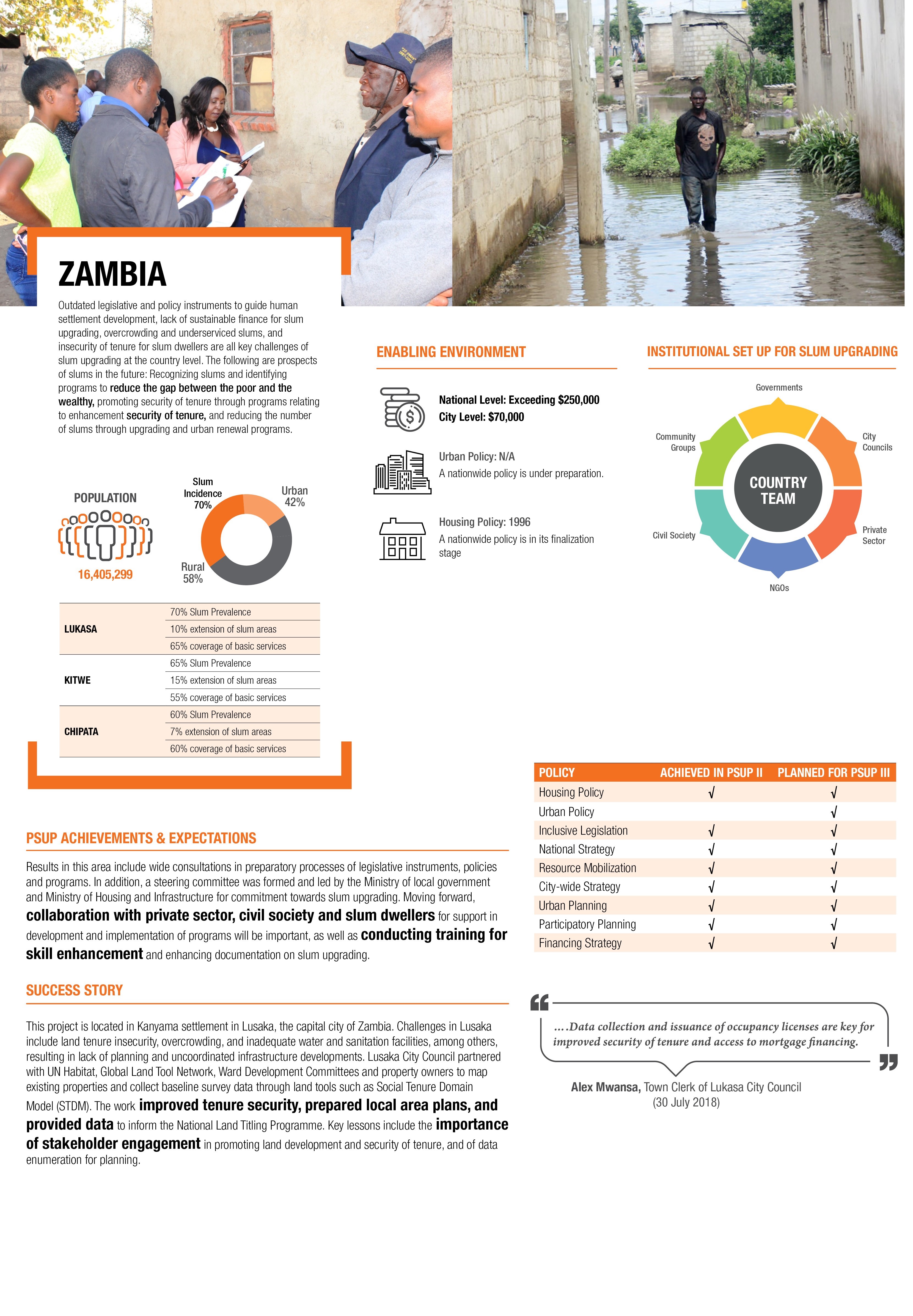Zambia
Unlike most of its neighbours, Zambia has managed to avoid war, earning itself a reputation for political stability. It has experienced rapid economic growth over the last decade and is one of the most urbanised countries in Africa. This has brought major challenges, such as the provision of land and services to an ever-increasing urban population. Cities and urban areas host almost 50 per cent of the inhabitants. Despite its progress, Zambia’s economic growth remains below the levels necessary to significantly reduce poverty. Some studies even indicate that over 70 per cent of Zambians still live in poverty. Unemployment is a serious problem. In the larger cities, over 70 per cent of people live in informal settlements, with inadequate access to basic services.
Our project located in Kanyama settlement in Lusaka, the capital city of Zambia faces challenges such as land tenure insecurity, overcrowding, and inadequate water and sanitation facilities. The challenges result from lack of planning and uncoordinated infrastructure developments. Lusaka City Council partnered with UN-Habitat, Global Land Tool Network, Ward Development Committees and property owners to map existing properties and collect baseline survey data. This helped to improved tenure security and to prepare local area plans. Key lessons include the importance of stakeholder engagement in promoting land development and security of tenure, and of data enumeration for planning.
PSUP results in this area also include wide consultations in preparatory processes of legislative instruments, policies and programs, which are to guide human settlement developments. In addition, a steering committee was formed and led by the Ministry of Local Government and Ministry of Housing and Infrastructure for commitment towards slum upgrading. Moving forward, more collaboration with slum dwellers, the private sector, and civil society will be important to reach more support in development and implementation of programs. Trainings for skill enhancement and improving documentation on slum upgrading will also be conducted. The country is now entering Phase 3 of the PSUP, during which further goals include reduction of susceptibility to flooding, better infrastructure and access to essential services through road and drainage improvement, and improved potable water.


